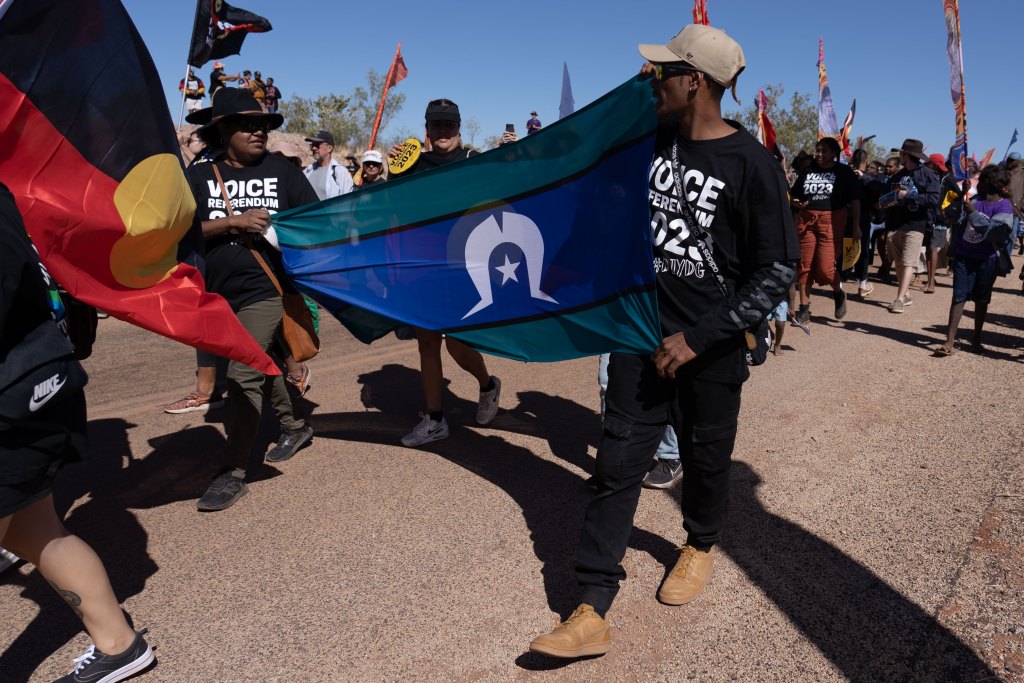Alien Weaponry want world domination. That’s according to their biography anyway, which reads less like an account of their history up until this point and more like a fiery statement of intent. The Northland thrash metal trio–made up of bros Lewis and Henry de Jong (ages 14 and 16, respectively) and Ethan Trembath (also 14)–make it clear from the get-go that they’re not here “to rely on the shock value of their extreme youth” and that they’ve instead developed their own distinctive sound, which is “destined to endure into future centuries”. If it’s to be believed, there’s also a bit in there about how the band “started jamming and writing songs before they learnt the alphabet”. They also refuse to play covers, for what it’s worth.
If you think it all sounds a little overcooked, then you’re likely doomed to be on the wrong side of history. The teens are already on their way after winning both the Smokefreerockquest and Smokefree Pacifica Beats competitions last year, something which is doubly impressive considering that a) it hadn’t be done before; b) they’re the youngest band to win either competition; and c) no metal act has ever won Pacifica Beats. The industry’s paying attention, including NZ On Air who granted them $10,000 to record a new song and produce a video, something which also saw them become the youngest artists to receive funding like this in New Zealand history.
Videos by VICE
They boys are making their own lane, and they’re doing it by using their music to explore Māori identity and New Zealand’s bleak colonial history. Lewis and Henry are of Ngāti Pikiao and Ngāti Tuara descent and in ‘Raupatu’, their new single, they tell the story of Māori land confiscation in the 1860s.
Henry, who plays drums in the band, also tells us he thinks Waitangi Day provides a good opportunity for discussion and learning from our history. “As far as people my age are concerned, there is a definite lack of knowledge and interest for the actual history behind the treaty and what it actually was,” he says. “I think part of this problem is the lack of education around New Zealand history in schools. It is almost like it’s being avoided.”
VICE: You’re known for incorporating elements of Māori history and identity into your music. How early into making music were you when you started to explore those ideas?
Henry de Jong: We first thought to start writing in Māori in late 2014. Looking at haka we thought incorporating metal and Te Reo Māori would work really well together, as they have the same intensity and power. My brother Lewis and I spent the first few years of our schooling at a Kura Kaupapa Māori and did kapahaka every day, so the energy and feel of what we were trying to achieve came to us very easily.
You continue to take Māori language classes now you’re in high school in Waipū. How important is it for you to keep it up?
The classes themselves aren’t a huge thing for me, but I take them to improve my Reo and keep connected with Māori speakers my own age.
When it comes to songwriting, what sort of topics do you tend to be attracted to?
We are a thrash metal band so we tend to write about personal issues as well as social commentary on things we find relevant. Lately we have been writing a lot about New Zealand’s history and events surrounding the land wars and confiscation of land from Māori. But other themes of our songs are stuff that happens to us through school and interactions with friends. Lewis writes quite a lot about unresolved anger. In fact, writing about it helps resolve that stuff in a way, I suppose.
You’ve been compared to Sepultura, who combine Portuguese and English, for mixing Te Reo into your music. What was it that inspired you to begin writing this way?
It’s funny really because we were not really big Sepultura fans, but since people have been comparing us we have been listening to their stuff a bit more–especially the older stuff. I think it’s because of their album Roots that people compare us. The reason we started to write in Māori was actually because of our friends in another band called Strangely Arousing, who are kind of a ska band. They won Pacifica Beats a few years back. We thought if they can, we can too.
Have you had negative feedback from anybody?
The response to our Māori material has been overwhelmingly positive. A lot of people have told us that even though they don’t normally like metal, they really like what we are doing in Te Reo. The live clip of our song ‘Ru Ana te Whenua’ we put up on Facebook last year got over 120,000 views. Our last single ‘Urutaa’ has been getting pretty good airplay here and overseas, and the video got played a lot on The Edge TV which is unusual for a metal song. It’s been pretty humbling actually.
If you’re in Auckland and looking for something to do ahead of our Waitangi panel discussion, you can catch Alien Weaponry play for free at Aotea Square on Sunday 5 February at 12:30 PM.
Find more of our Waitangi Week content right here.




